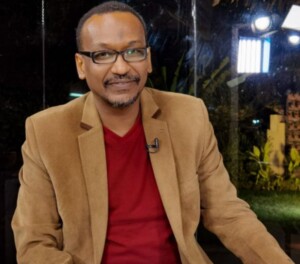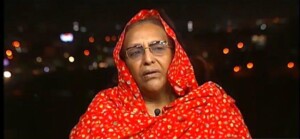Background: Who are the Rapid Support Forces in Sudan?
The paramilitary Rapid Support Forces (RSF) are held accountable for widespread systematic crimes against civilians, constituting ‘egregious crimes’ against humanity and war crimes, Human Rights Watch published in the report ‘Men with no Mercy’ today.
In one account, villagers of Golo in Central Darfur told the international human rights watchdog (HRW) how they were lured by RSF members during the Friday prayer in the mosque in January this year. One of them promised protection and security if the people would come into town.
The paramilitary Rapid Support Forces (RSF) are accountable for widespread systematic crimes against civilians, constituting ‘egregious crimes’ against humanity and war crimes, Human Rights Watch (HRW) published in the report ‘Men with no Mercy’ today.
In one account, villagers of Golo in Central Darfur told the international human rights watchdog how they were lured by RSF members during the Friday prayer in the mosque in January this year. One of them promised protection and security if the people would come into town.
A 25-year-old trader who was in Golo market said: “Commander Hashim spoke to us in the mosque on the Friday before the attack. He told us to tell our friends in the villages to come into the town. That nothing would happen here and that the government would protect us.
“The soldiers told civilians in neighbouring villages to go to Golo as well, where they would be protected by the government garrison forces. Many of the civilians interviewed heeded this advice and went to the military garrison”.
According to witnesses, approximately 100 pickup trucks carrying RSF soldiers arrived in Golo on 24 January at about 8 am. Immediately after their arrival they began beating men, raping both women and men, and summarily executing people who refused to give up their animals or resisted rape attempts, according the HRW report. They also robbed people of their properties.
RSF is ‘regular force’
The Rapid Support Forces (RSF), in Arabic El Guwat El Da’m El Saree’, are under the command of the National Intelligence and Security Service (NISS), which is accountable to the Sudanese president. The RSF militia was created in 2013 to fight armed rebel groups throughout Sudan.
Members of the RSF have been issued NISS identity cards. These IDs ensure them immunity under the National Security Services Act of 2010. In January 2015, a constitutional amendment gave the RSF the status of ‘regular force’.
The force is commanded on the ground by Brig Gen Mohamed Hamdan Dagalo, commonly known in Sudan as ‘Hemeti’.
Hemeti is a former commander of the paramilitary Border Guards and Janjaweed militia leader. He is the nephew of Juma Dagalo, chief of the Awlad Mansour section of the Mahariya clan of the Abbala (camel-herders) Rizeigat Arabs based in Chad.
Hemeti reports to NISS Maj Gen Abbas Abdelaziz, who is based in Khartoum. Overall command is said to reside with NISS Director General Ali El Nasih.
The members of the RSF have been drawn from paramilitary forces, notably the Border Guards, and other government-backed militia groups, including a variety of proxy militias, commonly known as janjaweed, as armed bandits are called in Darfur. These were armed by the government at the start of the conflict in Darfur and were the primary perpetrators of brutal attacks on non-Arab civilians, the activist Enough Project stated in January 2014.
According to several sources, including Maj Abdelaziz, the majority of the RSF troops are Darfuris recruited by Hemeti in September and October 2013.
Many of these Darfuris come from Hemeti’s clan and other clans within the Abbala Rizeigat; however, they also come from other ethnic groups in Darfur. Civilians who have heard members of the RSF speaking claim that some of the fighters speak foreign dialects of Arabic, which they believe to be from Chad and Niger. The Rizeigat are one of many tribes who fall under the Jeneid (Junaid) and this larger group brings together dozens of tribes dwelling in more than one country, including Sudan, Chad, Central African Republic, Niger, Mali, Libya, and Egypt. Ethnic Nuba have also reportedly been recruited into the RSF.
The RSF consists of at least five to six thousand troops, but the number might have grown.
The about 6,000, mainly young, recruits were to be trained as paramilitary troops in camps near Khartoum, in order to fight along with the Sudanese army in South Kordofan. Large numbers of these militiamen were stationed in the area near El Obeid, capital of North Kordofan, from the end of 2013 onwards. After assaulting El Obeid’s residents, they were expelled in February 2014, and re-stationed in Darfur, reportedly to fight rebel groups. The North Kordofan governor then explained that the forces were called Rapid Support Forces, belonging to the operations body of the NISS.
(Source: HRW report ‘Men with no Mercy‘)











 and then
and then